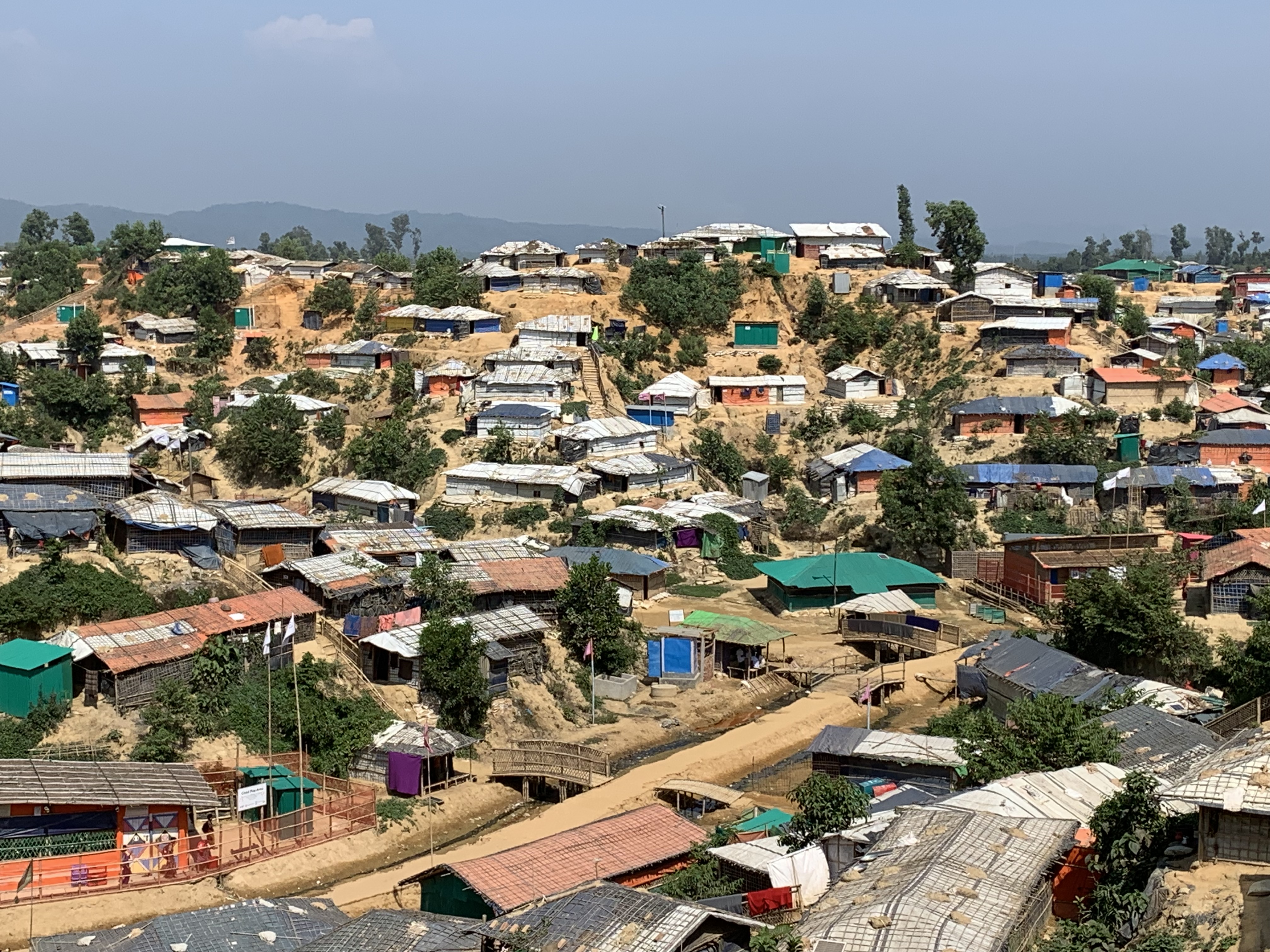Resilient Futures for the Rohingya Refugees
The UCL Institute for Risk and Disaster Reduction in collaboration with the University of Dhaka was successful in being awarded a project – “Resilient Futures for the Rohingya Refugees”

29 August 2019
The Challenge of the Research
Violence towards the Rohingya in Myanmar from 2017, caused the mass displacement of people from Rakhine State to southeastern Bangladesh. The Human Rights Council acting under UN resolution 34/22 has cited this as a crime against humanity and called for an investigation for genocide against the authorities in Myanmar. The majority of the nearly one million displaced persons are residing in overcrowded temporary makeshift shelters, of bamboo frames and plastic sheeting, in Cox’s Bazar district. The camps are highly susceptible to rainfall-triggered landslides, flash flooding and cyclones and the likelihood of a public health emergency from infectious diseases is high, which in this vulnerable population threatens new disaster. Most Rohingya are not recognised as legal refugees by the Bangladesh government, which severely restricts permanent and safe construction, and so emphasises the importance of preparedness and early warning systems to reduce vulnerability to disaster. Working with Dhaka University Department of Disaster Management, and the Centre for Genocide Studies, the aim of this project is to help build resilient futures for the Rohingya refugee and local host populations in Cox’s Bazar district, through research and practical solutions to reduce hydro-meteorological disaster risks, particularly landslide risks. This involves building a rigorous scientific evidence base on landslide hazard and vulnerabilities of refugee and host communities; developing a dynamic landslide early-warning system; improving awareness in vulnerable communities and strengthening capacity to inform policymakers and practitioners; incorporating landslide resilience into a multi-hazard assessment for resilient futures for the Rohingya refugees.
Research Aim
The principal research aim is to help build resilient futures for the Rohingya refugee and local host populations in Cox’s Bazar district, Bangladesh, through research and practical solutions to reduce hydro-meteorological disaster risks, particularly landslide risks, through a co-produced approach between natural and social scientists.
Specific Objectives
- Build a rigorous scientific evidence base for understanding hydrological processes and physical controls on landslide hazard and the vulnerabilities of refugee and host communities in Cox’s Bazar district.
- Develop effective disaster risk reduction tools of landslide susceptibility maps and a dynamic landslide early-warning system at a local scale.
- Improve awareness in vulnerable communities and strengthen capacity of Cox’s Bazar authorities in order to inform policy makers and practitioners on long-term strategic planning with short-term preparedness.
- Build landslide resilience into a broader multi-hazard assessment for resilient futures for the Rohingya refugees.
The project is funded by the Royal Society (£500,000) under its ‘Challenge-led Grants’ scheme which is supported by the UK Government’s £1.5 billion Global Challenges Research Fund (GCRF).
(Royal Society Award Reference: CHL\R1\180288)
Project Duration: March 2019 – September 2022.
Principal Investigator: Professor Peter Sammonds, UCL Institute for Risk and Disaster Reduction, University College London (UCL), UK.
Project Manager: Dr Bayes Ahmed, Lecturer, UCL Institute for Risk and Disaster Reduction, University College London (UCL), UK.
Co-Applicants
[1] Professor A.S.M. Maksud Kamal, Department of Disaster Science and Management, University of Dhaka, Bangladesh.
[2] Professor Imtiaz Ahmed, Director, Centre for Genocide Studies, University of Dhaka, Bangladesh.
Royal Society Announcement Link: https://royalsociety.org/news/2019/04/challenge-led-grants-announcement-2019/
UCL News Link:
 Close
Close

